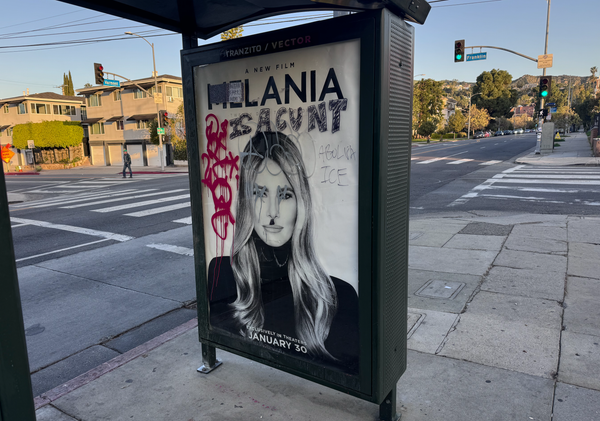I forgot meeting Rob Schneider
My memory is very, very bad - so I set out to find some meaning in the haze
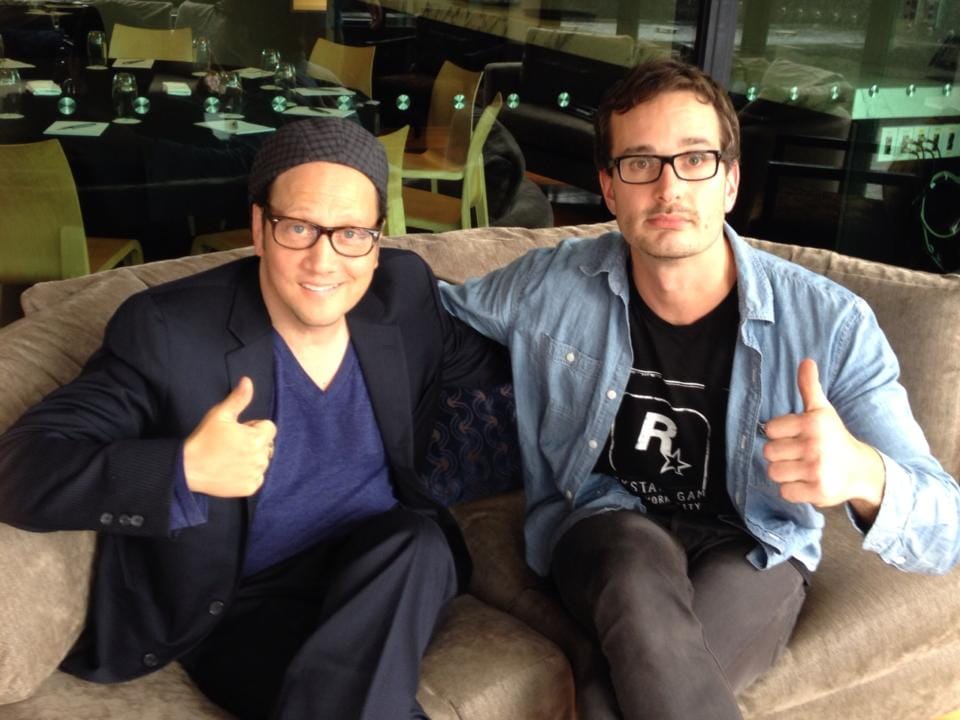
Hi,
Just quickly: I felt so warm and fuzzy reading your feedback to my last newsletter. Honestly — it was overwhelming. Over 200 bits of feedback, including this from Sarah:
“I have replaced all my social media (nearly 2 years no Facebook, 1 year no Instagram, 2 months no Whatsapp! So proud) with Webworm and I reckon you’d be able to find some positive physiological trends if you got me one of those health apps”
Not sure if that’s true or not, but if Webworm makes you healthier in the brain then I’m all for it. I’m sorry I couldn’t reply to everyone, but please know I read all your replies and they made me really happy. To those randomly selected — Kate, AC, Mona-Lynn, Matt, Lhara, Jenny, Lisa, Callum, Abbey, and Ali — I just popped your tees and blu-rays in the mail yesterday. So depending on pandemic mail… you will see them sooner or later!
I promise I will be getting more tees printed in the future!

Now, onto today’s Webworm.
Memory: The Internal Rumour

I moved recently, and in doing so unearthed a bunch of boxes that had been sealed shut for years, stored under my parent’s stairs. In one of those boxes I found all the Stephen King books I’d obsessively collected during my teens, and into my 20s. There are a few first editions, but largely they’re just whatever terrible paperback covers came out at the time (there are a few hardbacks, but that shit was expensive in the nineties).
And as I unpacked books like The Stand, Carrie, Skeleton Crew, The Girl Who Loved Tom Gordon and The Tommyknockers (peak cocaine King), I realised I couldn’t remember half of the plots. To the point where I was unsure if I’d even read some of them or not. The covers I recognised, the content was a haze.
Duma Key was one of those books, so I took it off the shelf (they finally have a home that isn’t a box), and I started reading. And the opening quote (King often starts his books by quoting literature or lyrics; I’ll never forget opening the final Dark Tower book to see the lyrics for Nine Inch Nails’ Hurt staring back at me) hit me like a tonne of bricks:
“Memory… is an internal rumour”.
The words were from Spanish philosopher George Santayana, who passed away in 1952. And his words got me thinking even more about memory; my memory in particular, and how shocking it is. And how that’s probably impacted my life more than I’ll never know. So I wanted to explore that idea a little more.

I don’t have any memories of my early life. There wasn’t any trauma or dark family secrets, but my memories kinda kick in around five. But they’re fleeting; and before that — they’re blank. It’s a black hole. To me, the first five years of my life don’t exist.
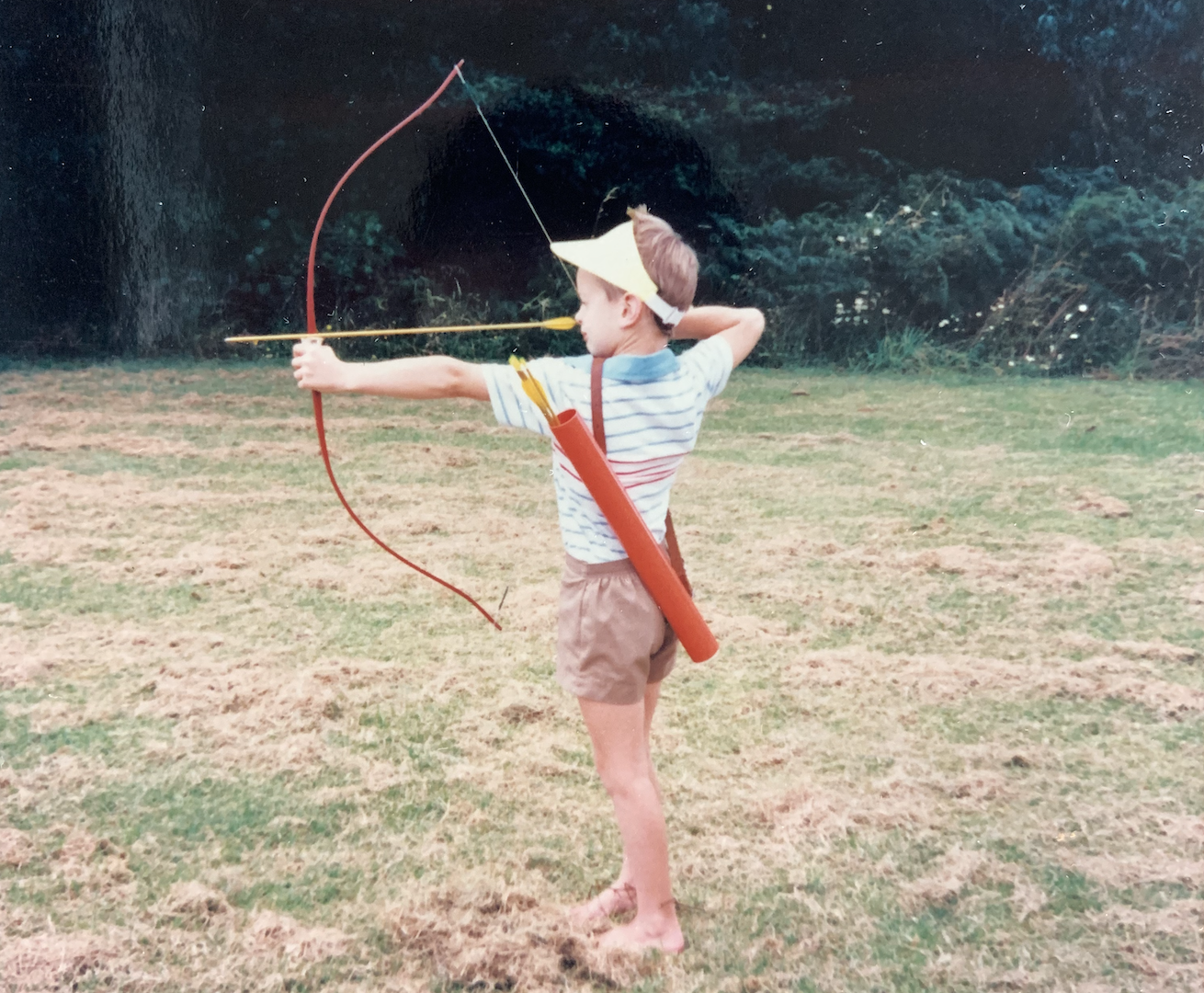
And to be honest even around that time, things like primary school and friends and films are fleeting. Things only seem to get more stable when I hit high school, around 11.
Here and now, today, I don’t remember people’s names very well. That wreaks havoc in both my professional and personal life. No-one wants to feel like they’re not remembered. Not remembering someone’s name is shorthand for saying they’re worthless.
But it’s a step further for me — I struggle with faces. So sometimes I’ll bump into someone I’ve met before, and they won’t even see a glimmer of recognition from me. Context plays into this, too. If I see someone I know in an unexpected or unfamiliar situation, it takes me a little longer to attach meaning to the face. Maybe a small dose of prosopagnosia, or just visual laziness.
When I worked as an entertainment reporter, I’d interview a lot of people. The ones I really cared about made an impact, but there are some that I simply don’t remember. A photo of me and Rob Schneider popped up on my Facebook feed, and it’s as if it never happened. I nearly spat my drink out when I saw it. He’s so annoying — how could I forget?

Then there was a photo of me with wrestler and actor Dave Bautista. No memory of that one, either. I’ll be watching a film with my friend Dan, and he’ll go “You met that person. You spent an hour with them”. It’s news to me. I’ve circled around this idea before. It worries me, I suppose.
i estimate i forgot 95% of my cumulative life exeriences. most facebook memories & old photos i would never have recalled unless i’d been prompted. i think i live life a bit like a basic goldfish. wonder how my perception of life would alter if i could readily remember the past
— David Farrier (@davidfarrier) 12:10 AM ∙ Jul 27, 2019
I decided to talk to my best friend Dan about it. We’ve known each other forever, he’s like a brother. He’s like a brother in that he bullies me, and is brutally honest. I told him I was writing a newsletter about my memory, and to write his experience of me down.
“David’s memory problems have been interesting to observe over the years — generally amusing but sometimes quite a problem” he emails me.
“Sometimes we’re talking about a celebrity and I’ll remind him he’s interviewed them, as he has no recollection. That makes me feel weird, like, ‘Why do I remember something he’s done and he doesn’t? I wasn’t even there!’
“In recent years, before some social occasions, just before we go in I'll remind him of people’s names and what they look like. That’s because it can be really bad when he doesn’t remember. Some people get really, really offended if you don’t remember who they are. It’s shitty for them, but also really shitty for Dave as he’s upset someone, completely unintentionally.
“Along with his eyesight, his memory is his one major flaw, I’d say.”
Thanks, Dan. I genuinely guffawed at “just before we go in I'll remind him of people’s names and what they look like.” He really does. It’s like I’m a 95 year-old-man.
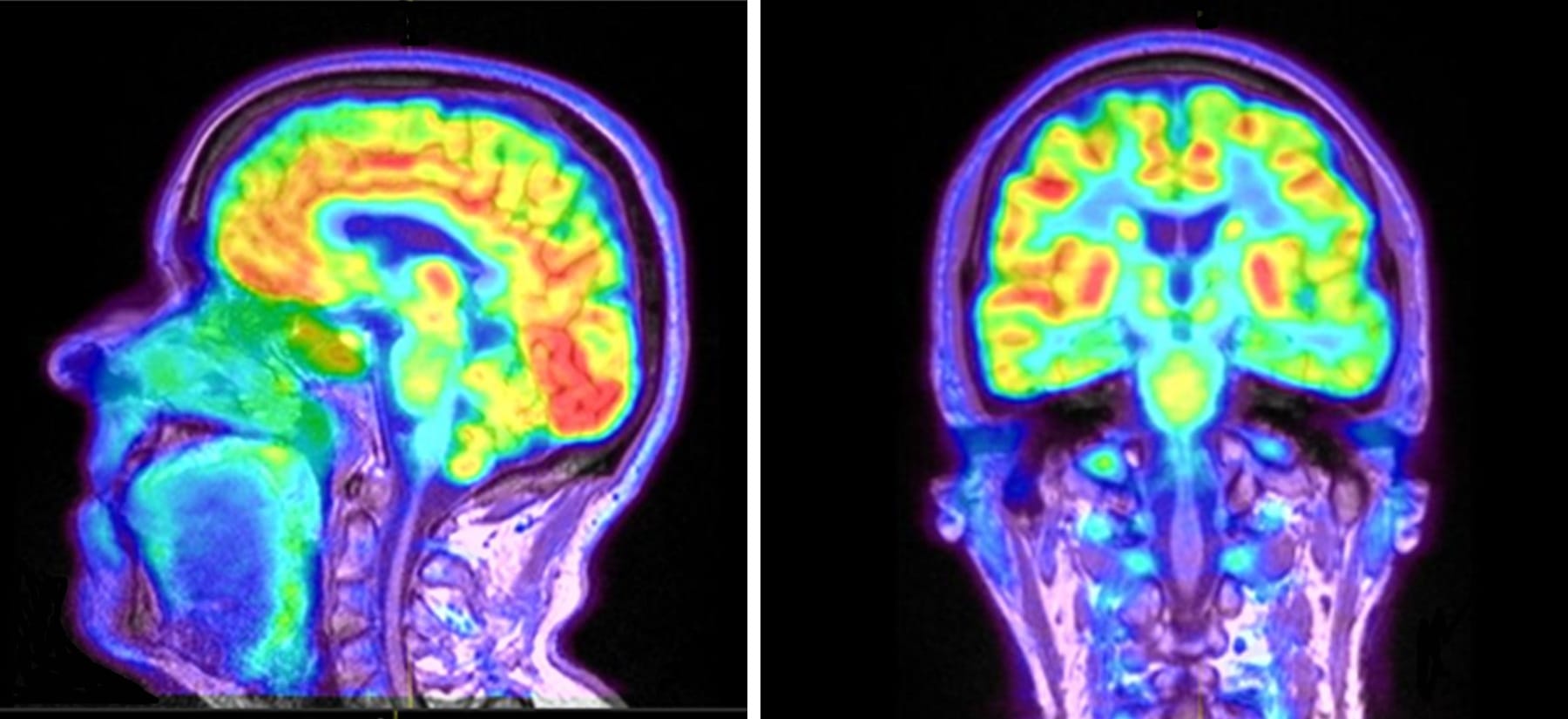
As for the practical, day-to-day workings of my brain, I’ve found workarounds.
Sure, Dan helps me, but sometimes I do okay on my own, too. I try to greet everyone I meet with enthusiasm, on the off-chance I’ve met them once before, or 10 times. Better to come across as a bit much than someone who doesn’t care enough to remember a face. I never dare to say “nice to meet you” — it’s always “nice to see you”.
In my documentary work, I take a copious amount of notes. If thing aren’t written down, it’ll fall out of my brain, only to be discovered again later. It keeps me honest, I suppose.
But I wonder how it’s affecting my ability to learn from my own history, and the way I perceive myself. Old relationships are murky, and I’m never fully sure why people fell away, or why I fell out of love, exactly.
It’s like someone is constantly editing my Wikipedia page, my perception shifting and changing as I try and grasp my own past. I live and exist in a sort of haze — good, in some ways — as in the moment, I think I can be pretty great. Present, alive, excited.
But I do find myself wondering how much easier (or harder) life would be if I could see my entire timeline in perfect clarity. If I could think to myself, “This is exactly what happened five years ago, because this person said this, and that annoyed that person, and that is why X no longer talks to Y”. If I could go, “No, I left that relationship because of X and Y and Z.” The simple fact is, when I look back at relationships, most of the bad has fallen away. I can just remember the best moments, the best things. That’s a confusing place to observe things from.
I reached out to friend of Webworm Paul Wilson, a psychotherapist from New Zealand who shares a lot of my interests. He’s the guy who provided such good insight into the conspiracy thinking that gripped 2020 (and continues to grip 2021, unfortunately). If Paul could get inside the head of a conspiracy theorist, I assumed he could help decode my brain, too.
So I ran my memory issues past him, to seek some kind of rational explanation.
“Firstly, memory doesn’t work the way it’s commonly presented. It’s not a recording device, but a shifting reconstruction from our present point of view. Our memory of past events reflects our current understanding and values” Paul tells me.
It took me back to that quote: Memory is an internal rumour.
Paul goes on. “Forgetting gets a bad rap — it’s necessary and intrinsic to allow our brains limited resources to focus on what’s most deeply important to us, regardless of whether we like the social consequence of that — namely, the shame of forgetting someone’s name, which happens to me more than I’d like to admit to.
“And this is more personal theory — I don’t have specific references for this — but I believe people with a genetic predisposition for busy minds and an attraction to novelty have more going on (and going in) so forgetting may be more central to their experience. That busy-ness is linked to heightened dopamine function in the brain which is what regulates and underpins attention, motivation and the reward centre — pleasure”.
“So, if our mind is very busy and we’re skipping across subjects and interests, the brain system which is responsible for transferring working short term memory (encoded electrically) into long term memory (encoding biochemically) doesn’t get a chance. That’s all centred on the hippocampus and the amygdala.
“This process is also what gets overwhelmed or bypassed in trauma, as you mentioned. Normally, increasing emotional arousal improves memory formation, but beyond a threshold, it stops it.”
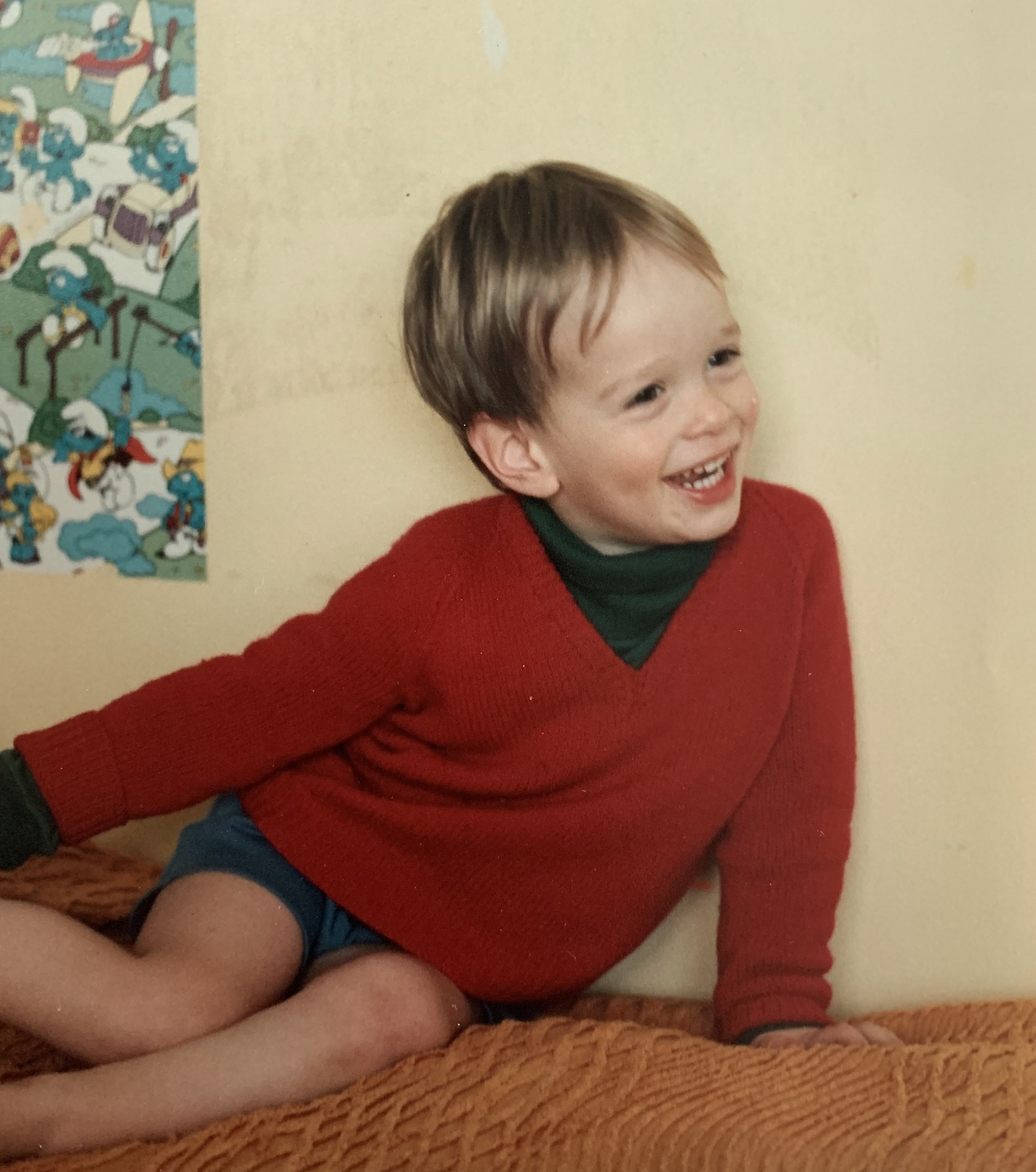
Paul also has a possible explanation for why I don’t remember meeting Rob Schneider.
“Now, curiosity and interest and excitement are emotions — just read Paul Ekman’s book Emotions Revealed. But if we’re too curious and overstimulated, I wonder if something similar happens.
“Anyway, the term for this particular dopamine related genetic predisposition is ADHD, or Attention Deficit and Hyperactivity Disorder. However, I don’t consider it inherently a disorder — that’s just neurotypical prejudice. That being said, in its more intense forms, it’s important to seek treatment as it’s very treatable with both medication and therapy.
“The genes that underpin it are not rare: they’re expressed in about 7-10% of the world’s population. In saying that, that’s the diagnosed rate. Given that many adults have it without realising, I think it’s likely higher.
“Interestingly, in African hunter-gather tribes, it’s closer to 30%. So in our ancestral past, these were the individuals figuring out pattens in the big picture by obsessively studying something which interests them: ‘See, the antelope herds all come to that watering hole every two weeks and the lion’s lurk on the edge over in those trees. If we wait over by those rocks and then scare the lions of their kill with a lot of noise which I’ve noticed they don’t like, then we can have it with little risk to ourselves!’
“So we can think of these genes as better suited to the ‘explorer/hunter’ as opposed to the ‘farmer/factory worker’. Just a valuable part of human genetic diversity, and hence not a disorder. ADHD and adult ADHD in particular is very misunderstood as a phenomenon. People with ADHD find it easier to sustain focus on things they find intrinsically rewarding, but their dopamine level plummets when facing something they don’t find intrinsically rewarding. A lot of procrastination and dysphoria and self-criticism can then flow from that.
“For the record, I include myself in this picture since I see ADHD in myself, and I think I see it in you as I’ve already mentioned when talking about ‘Healthy Schizotypy’. ADHD has big overlaps with Schizotypy and Hypomania, as the Venn Diagrams for these all share the same dopamine function influencing genes.”
Healthy Schizotypy. I like that. I’d go a step further and call it Happy Schizotypy. I’d never considered ADHD in my makeup, and thinking about it now it makes total sense. When I am “on” I am really on. When a project doesn’t interest me, or ceases to interest me anymore because it’s dragged on for so long, I’ll procrastinate endlessly to avoid it.
And perhaps I finally have an explanation for my memory issues. As Paul said, “forgetting gets a bad rap — it’s necessary and intrinsic to allow our brains limited resources to focus on what’s most deeply important to us, regardless of whether we like the social consequence of that.”
I don’t think that’s necessarily an excuse not to try and put extra effort into names and faces — but I feel happier in myself, I think.
All that said, if hell exists (and thanks to a Christian upbringing the fear remains) then it will be me, stuck eternally in Bruce Forsyth’s Generation Game. Bruce (rest in peace) was this very tall British man who had his own gameshow.
Towards the end of the show, contestants would be lead to a conveyor belt which would continuously spew up shiny items. Washing machines, cars, shoes, chocolate, soft toys, kettles, holiday vouchers. At the end of this display, the contestants had to rapidly name all the items they could remember. Whatever they remembered, they could take home.
If that were me, I’d go home with the last two items I’d seen. The rest would be long gone. And maybe that’s okay — who the fuck needs a new toaster, anyway?
David.


